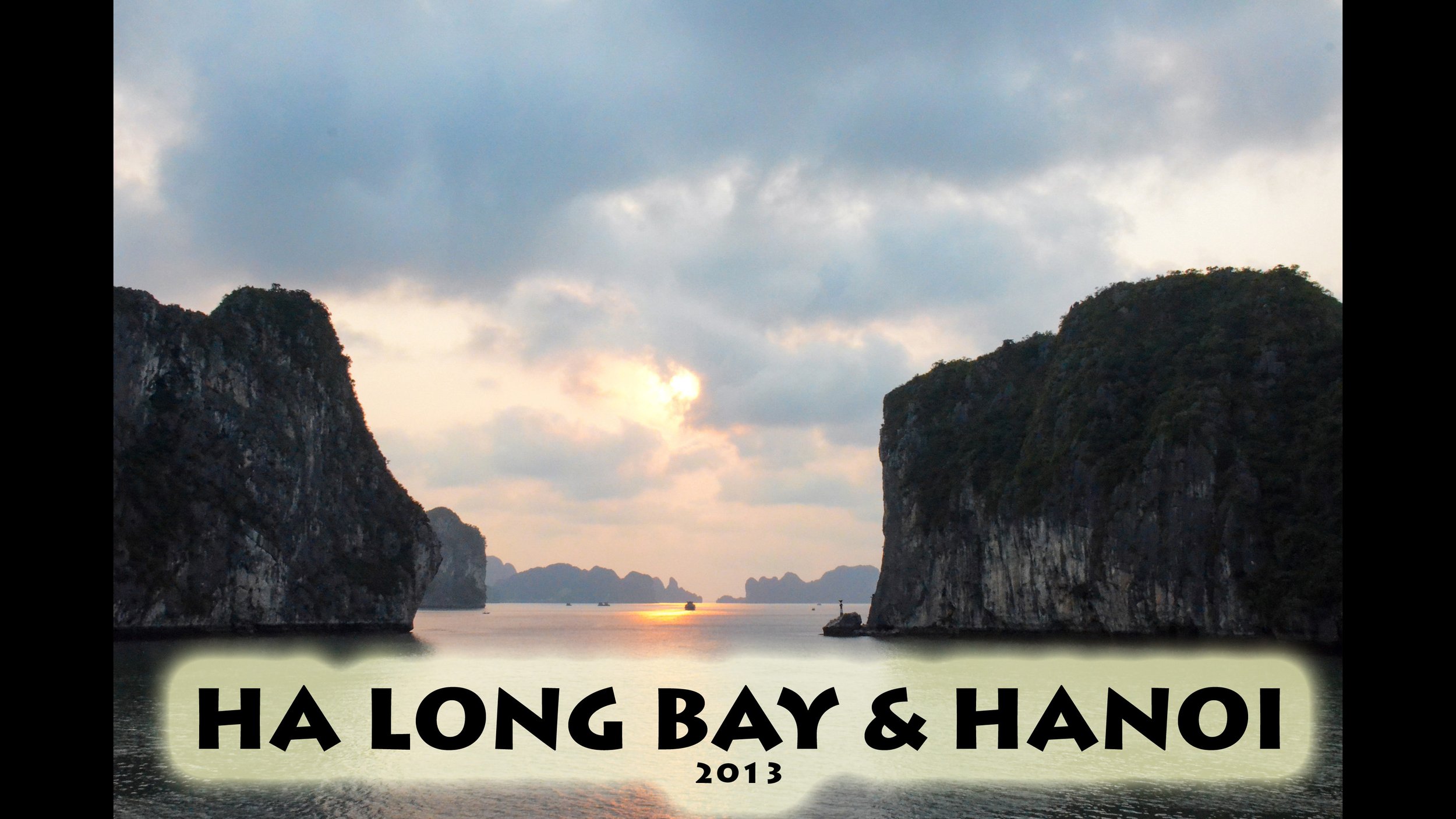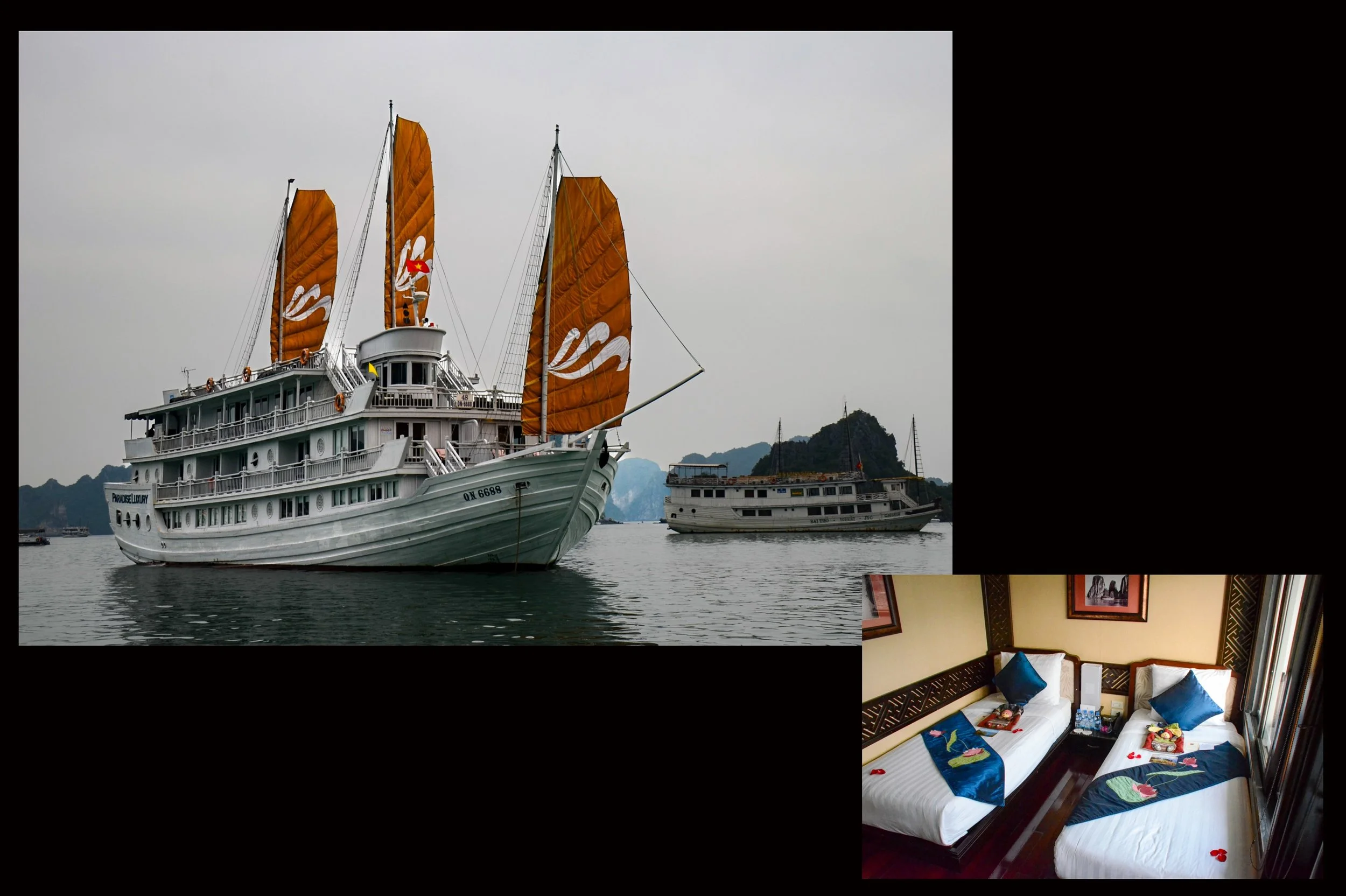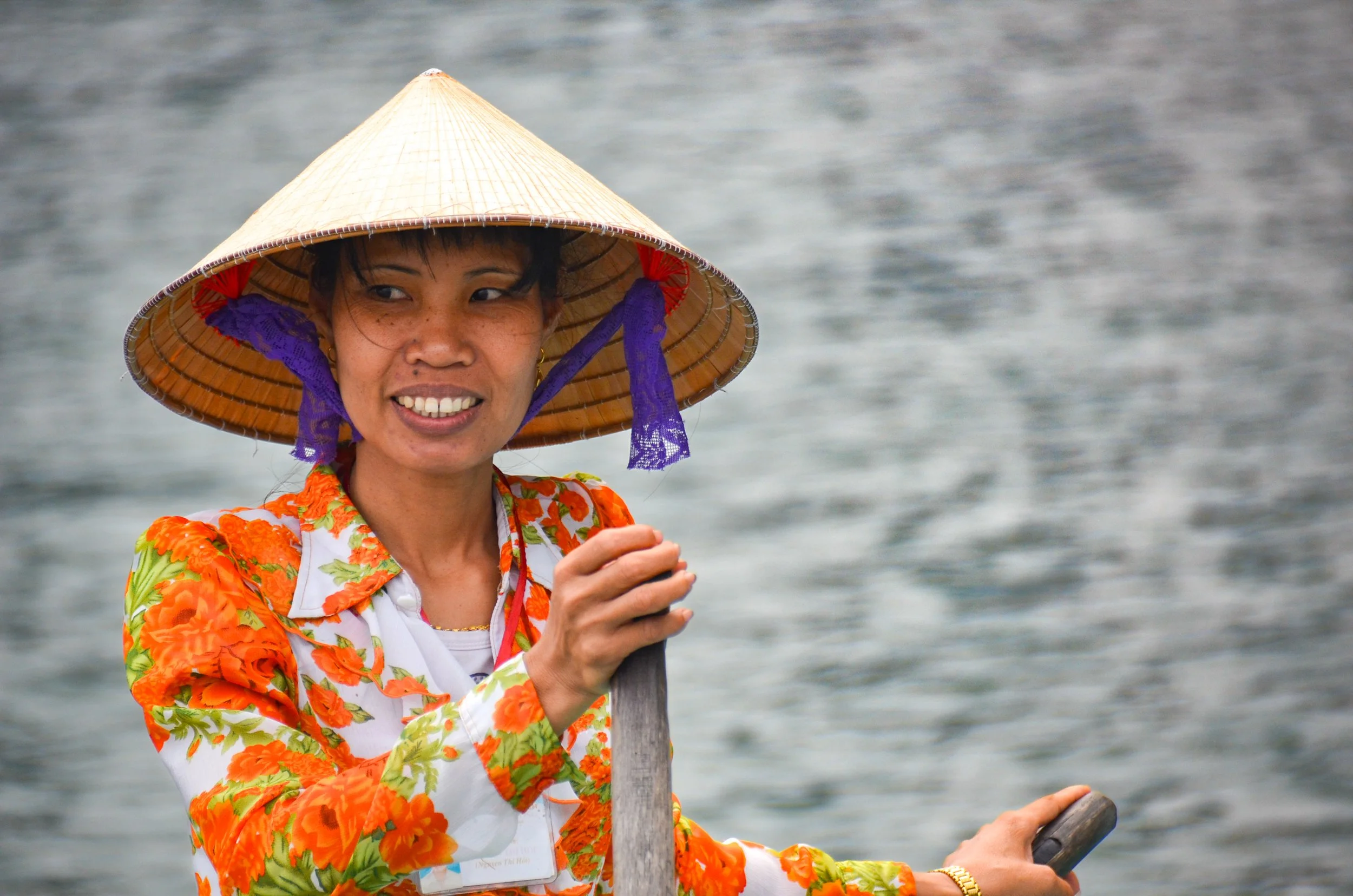As many of you know, Dale and I are both Vietnam Veterans. So, obviously, I wondered how we would feel going to Hanoi 42 years after our part in the Vietnam War. It had a fairly benign in effect on me. I managed to tune out when any local guide started some party line about Vietnam history. Virtually every Vietnamese I saw was born after that war, and I didn’t perceive any resentment or hostility among the North Vietnamese toward us. This doesn’t change my feelings about the tragic sacrifice and loss my generation endured, or my deep affection for my fellow Vietnam Veterans.
There was some pleasure in seeing all the beautiful young women again, some in the traditional ao dai. The countryside and hamlets and city all are very similar to Saigon and its surrounding area, where I was stationed. It is clearly a third world country and has long way to go.
Rather than living next to the water, the inhabitants of the Ha Long Bay fishing villages live on the water in floating houses. They make a living off the sea as well, with most people working as fishermen or shrimp farmers. Tourism is also now an important part of the villages' economy. We had dinner in a huge cave on one of the islands set up for a spectacular event with a Vietnamese girl band that played traditional and contemporary music.
In Hanoi we toured the city by cyclo, a seat propelled by a man pedaling the back half of a bicycle. You are the bumper. Hanoi has the same beautiful French colonial architecture and tree lined streets as Saigon, but is completely overwhelmed, and somewhat ruined, by motorcycles and scooters.
We had dinner in the courtyard of a museum preceded by a Vietnamese water puppet show, a fascinating and unique cultural tradition of Vietnam. The U.S. Ambassador to Vietnam spoke to our group after dinner and gave us an insightful understanding of the relationship between our countries.




























































